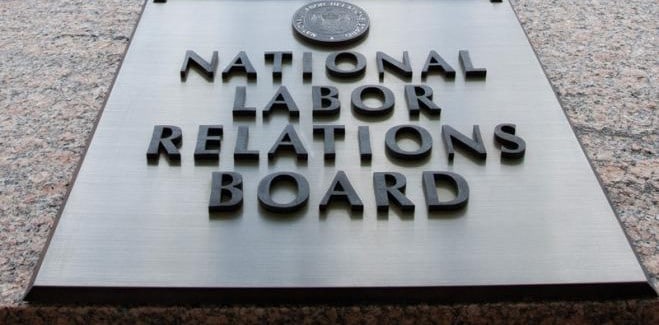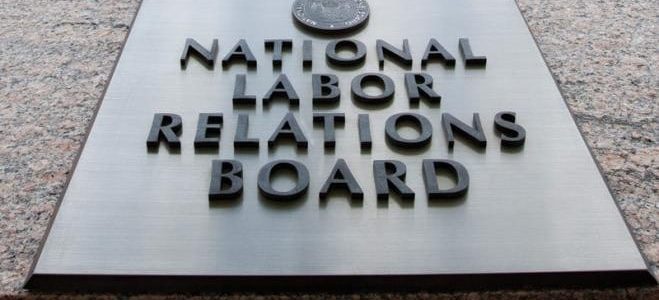
I. FACTS
At all relevant times, Charging Party Tamara Newboles was a regular rural carrier at the Postal Service’s Bend Detached Carrier Unit (“Bend DCU” or “Employer”) and a member of the National Rural Letter Carriers Association (“NRLCA” or “Union”). In July of 2019, the Bend Main Post Office Supervisor issued an edict prioritizing Sunday delivery of city parcels over Sunday delivery of rural parcels. Employees at the Bend DCU were unhappy about the edict, which increased their workload. On the morning of July 15, 2019, many employees were loudly expressing their dissatisfaction while they sorted mail in their sorting cases. Newboles discussed the edict with her coworkers and advised that they speak to Union Steward Carrie Firman-Berry about their concerns. For some of these discussions, Newboles left her mail sorting case to talk with coworkers who were in their sorting cases. The Bend DCU had a policy that prevented employees from talking while in their sorting cases, but this policy was not consistently enforced.
Later that morning, Bend DCU Supervisor Marsha Pickles called a general standup meeting to discuss the controversial edict. Newboles attended this meeting, as did Firman-Berry and many of Newboles’ other coworkers. During the meeting, Firman-Berry said she didn’t know of anything that could be done about the edict, and when Newboles responded that there must be precedent in the collective-bargaining agreement that could help, Firman-Berry told Newboles to send her any information about precedent in the collective-bargaining agreement she could find. After work, Newboles sent Firman-Berry two texts, one about grievance settlements and a second about a theory that management could be falsifying scans that marked packages as undeliverable. Firman-Berry did not answer the texts.
At around 9 a.m. on July 16, 2019, Supervisor Marsha Pickles called Newboles into a meeting. Pickles and Newboles were walking together to the meeting when Firman- Berry joined the group. Newboles saw Firman-Berry and said that “[a] little heads-up would be nice.” Firman-Berry responded that “[w]ell, we just decided to do this.” Pickles, Firman-Berry, and Newboles all sat down in an office and the meeting began.
Pickles opened by telling Newboles that she had been talking about union activities when she should not have been. Firman-Berry then said that Newboles was butting into matters that did not involve her. Newboles interrupted and stated that the two were about to violate her rights under the Act. Firman-Berry then complained that Newboles had upset one of her coworkers by discussing the edict and that the coworker had subsequently approached Firman-Berry multiple times. After Newboles responded to Firman-Berry’s complaint, Firman-Berry told Newboles to “stop butting into stuff” that did not directly involve her. Firman-Berry appeared annoyed and mentioned that Newboles had been continually texting her information. Newboles protested that Firman-Berry was not sufficiently protecting employees. Again, Firman-Berry told Newboles to butt out of matters that did not concern her.
At this point, Newboles asked Pickles if the meeting was finished. Pickles said it was not. Pickles instructed Newboles to stop leaving her mail sorting case to talk with coworkers about the Union or the recent edict. Upset, Newboles said that she would not stop discussing those topics, she knew her rights under the Act, and she would not be silenced. Pickles then verbally warned Newboles that if she did not remain in her mail sorting case and cease discussing coworker problems or ongoing conditions at the Bend DCU, she would be disciplined. Firman-Berry remained silent when Pickles delivered this threat of discipline. Newboles walked out of the office, Firman-Berry followed her, and the meeting ended. In total, the meeting lasted between 10 and 15 minutes.
Firman-Berry caught up with Newboles after leaving the meeting and they had a brief discussion. During this discussion, Firman-Berry told Newboles that their employer had every right to ask that she take her conversations off the workroom floor.
Newboles filed an unfair labor practice charge against the Union (initiating the instant case). In addition, Newboles filed a charge against the Employer, Case 19–CA– 248772, alleging that Pickles’ statements in the meeting constituted a 8(a)(1) threat. That charge was resolved by settlement.
II. THE JUDGE’S DECISION
The judge held that Firman-Berry’s conduct communicated a threat that Newboles would be disciplined if she continued to engage in protected concerted activity. He found that at the July 16 meeting, Firman-Berry and Pickles issued joint instructions to Newboles that threatened her with discipline. The judge additionally relied on the tense atmosphere in Newboles’ workplace and Firman-Berry’s open annoyance with Newboles to find that a reasonable listener would construe the totality of Firman-Berry’s conduct during and after the July 16 meeting as communicating a threat.

